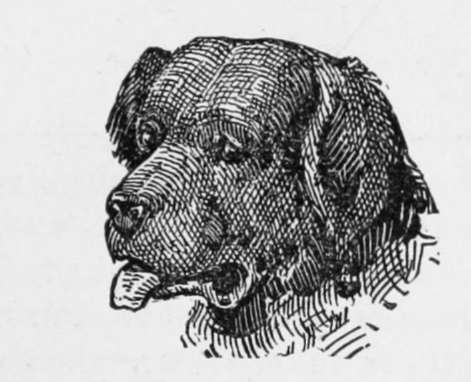Teething, Teeth
Description
This section is from the book "Breeding, Training, Management, Diseases Of Dogs", by Francis Butler. Also available from Amazon: Breeding, training, management, diseases.
Teething, Teeth
A great deal of stress is land on the teething of dogs. About this period, Nature appears to be undergoing a certain change, and a dog is in less danger from dying from Distemper, after the operation is thoroughly effected. The animal of course becomes stronger, as he gets older ; consequently the better fitted to withstand disease; otherwise the simple act of teething, I cannot imagine to effect materially the general health ; although from the great excitability of delicate breeds of dogs, fits may be often attributed to the annoyance occasioned by the process of dentition. Until the teeth be fully developed, the animal will require more than ordinary care and attention. His stomach should never be overloaded, particularly with meat or any gross food. Of light fare however, he mav always cat to the full, and his strength should be maintained by generous living. It is said there is great danger, should a puppy happen to swallow any of his teeth: For my part, I do not believe in any such nonsense, and should not be afraid to give a dog half a dozen with his dinner ; I am satisfied there would be no fatal result. It may be advisable to remove some of the first teeth, should any be in the way of the second crop, but I seldom see any occasion for it, except when they are quite loose, or interfere with the new-comers. Giving medicine to dogs simply because they are shedding their teeth is quite unnecessary. Should they be feverish or indisposed, it would be expedient, otherwise, Nature had better take its course. Dogs are apt to get cankered teeth, especially when attacked by Distemper, during the teething process ; therefore exposure to this latter disease should be avoided as much as possible, until the mouth is fairly furnished. The teeth often become foul and incrusted with Tarter. This arises either from gross feeding, the results of Distemper, or a disordered digestion, and is sometimes hereditary. Any good tooth-powder may be used and they may be cleaned with a brush. The ashes of burnt bread are about as good as anything for cleansing the teeth, and in no wise injurious. The teeth may be scraped, if necessary; but it should be done carefully, so as not to disturb the enamel. An occasional scrubbing with vinegar tends to sweeten the mouth and is excellent for cleansing the teeth. I do not imagine however, that cleansing the teeth will effectually cure fetid breath. It certainly has a good effect, but the stomach is more the scat of the affection, and must be kept healthy. Decayed teeth should be extracted as they render the breath very offensive. An animal with foul breath should be allowed but little meat, and be occasionally treated to a gentle purgative. Without attending to this, the teeth will soon become recoated, and the breath remain but little improved. For the age of a dog, we generally look to the teeth, but this is by no means a decided test, except perhaps at ages under two years. A five year old dog may perhaps have a better mouth than others of half his age. Nevertheless a young dog.

Continue to:
- prev: Harrier
- Table of Contents
- next: Beagle
